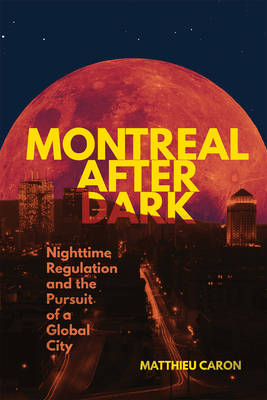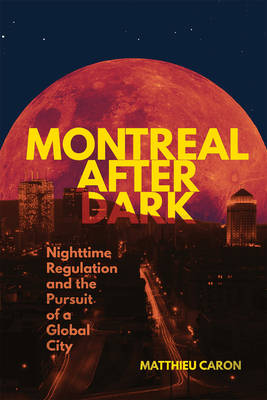
- Afhalen na 1 uur in een winkel met voorraad
- Gratis thuislevering in België vanaf € 30
- Ruim aanbod met 7 miljoen producten
- Afhalen na 1 uur in een winkel met voorraad
- Gratis thuislevering in België vanaf € 30
- Ruim aanbod met 7 miljoen producten
Zoeken
€ 53,45
+ 106 punten
Omschrijving
Sex and jazz, liquor and gambling: Montreal in the early twentieth century was a city that offered an exceptional nighttime scene in North America. By mid-century that scene came under scrutiny, and Montreal's influential mayor Jean Drapeau would be elected for the first time on a reformist platform that promised to end corruption. Over more than three decades, Drapeau would endeavour to transform Montreal into a world-class global city by regulating its nightlife. Montreal After Dark chronicles the spaces where nighttime regulations were enforced and contested. City authorities understood the night as enabling disorder, and they reorganized policing and crafted bylaws to gain control over it. Police and politicians mutually reinforced each other's drive to morally cleanse the urban landscape, especially for international events like Expo 67 and the 1976 Olympics. But in an era of social unrest Drapeau's administration also found itself responding to the protective services' discontent. The political culture of the city was quickly transformed following terrifying nights without their services. Matthieu Caron shows how, in an effort to incorporate the night into the expansionary tendencies of consumer capitalism, municipal authorities took sides in a debate over who had the right to public space at night, what constituted acceptable behaviour or expression, whose sexual activity sustained the social order - and whose threatened to destroy it. In terms that are strikingly familiar today, Montreal After Dark elucidates how the desires of politicians would come to reorganize how consumption and leisure, labour and dissent, noise, sex, and art were lived in Montreal after the sun went down.
Specificaties
Betrokkenen
- Auteur(s):
- Uitgeverij:
Inhoud
- Aantal bladzijden:
- 342
- Taal:
- Engels
- Reeks:
Eigenschappen
- Productcode (EAN):
- 9780228024774
- Verschijningsdatum:
- 13/05/2025
- Uitvoering:
- Paperback
- Formaat:
- Trade paperback (VS)
- Afmetingen:
- 152 mm x 228 mm
- Gewicht:
- 498 g

Alleen bij Standaard Boekhandel
+ 106 punten op je klantenkaart van Standaard Boekhandel
Beoordelingen
We publiceren alleen reviews die voldoen aan de voorwaarden voor reviews. Bekijk onze voorwaarden voor reviews.








